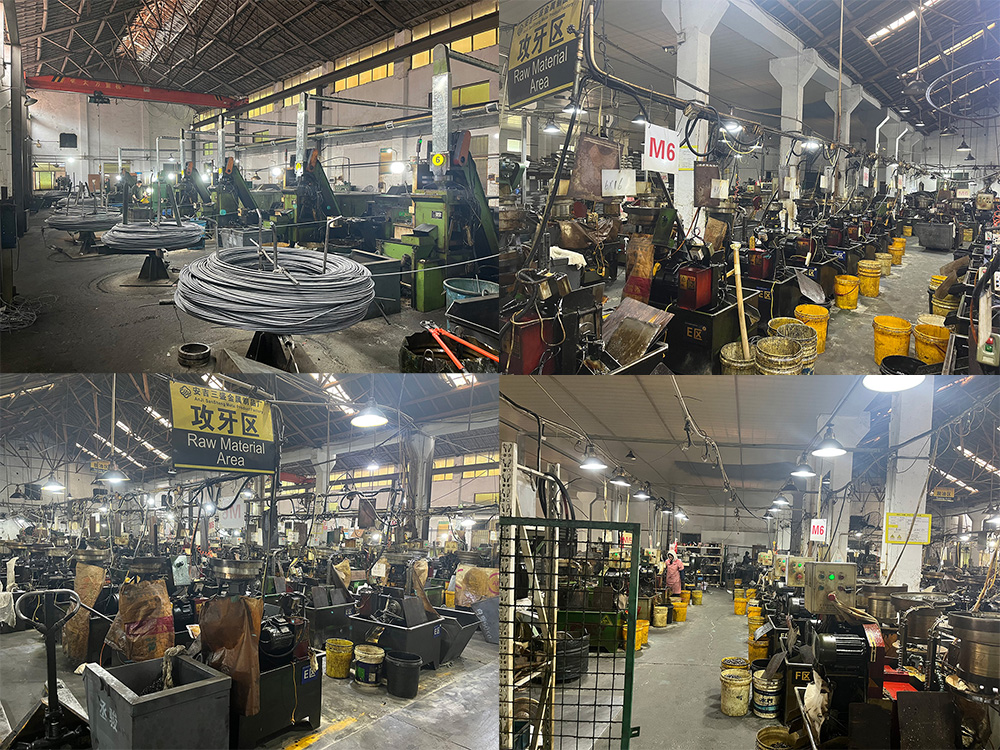What Is The Production Process Of Screws?
The production process of screws involves several steps, from design and material selection to machining, threading, and finishing. Screws are essential fasteners in various industries, including construction, automotive, electronics, and machinery.
As a professional fastener manufacturer, Xinchi is happy to share an overview of the typical production process for manufacturing metal screws.

Material Selection: The first step is choosing the right material based on the screw’s intended application. Common materials include carbon steel, stainless steel, brass, and aluminum. The material selection will affect the screw’s strength, corrosion resistance, and cost.
Wire Drawing: The selected metal is initially in the form of thick rods. These rods are drawn through a series of dies to reduce their diameter and increase their length, creating wire of the desired diameter for the screws.
Heading: The wire is then cut into short lengths, and each piece is fed into a cold heading machine. The machine uses high force to press the material into the shape of a screw head. This process also creates a blank shank where the threads will be formed.
Thread Rolling: The threads can be formed using several methods, but thread rolling is common for mass production. In this method, the screw blanks are rolled between two die plates or passed through a threading machine that has thread-shaped grooves, deforming the blank’s surface to form threads. This process is efficient and strengthens the thread by cold working the metal.
Heat Treatment: After threading, the screws may undergo heat treatment to improve their strength and toughness. This process involves heating the screws to a high temperature and then rapidly cooling them, a process known as quenching, followed by reheating to a lower temperature and slowly cooling, known as tempering.
Surface Finishing: The screws are then subjected to surface finishing processes to improve their appearance and corrosion resistance. Common finishes include zinc plating, nickel plating, galvanization, and black oxide coating. The choice of finish depends on the application and the environmental conditions the screw will be exposed to.
Quality Control: Throughout the production process, quality control checks are conducted to ensure the screws meet the specified standards. This includes checking the dimensions, thread quality, and material properties of the screws.
Packaging and Shipping: Finally, the finished screws are sorted, packaged, and shipped to distributors, retailers, or directly to customers.
This overview simplifies a complex process that can vary significantly based on the type of screw being produced, its size, the materials used, and the specific requirements of the application it’s designed for. Advances in manufacturing technology, such as CNC machining and automation, continue to evolve the screw production process, increasing efficiency and precision.

XINCHI is a trustworthy fastener company. We have a factory that was founded in 2007. We are the designated fastener supplier to“STAPLE”. As a trusted fastener supplier, XINCHI offers a wide range of high-quality fasteners, including nuts, screws, bolts, rivets, and washers. Our products are widely used in automotive, machinery, construction, electronics, and furniture industries, trusted by global customers for stability, precision, and durability.

